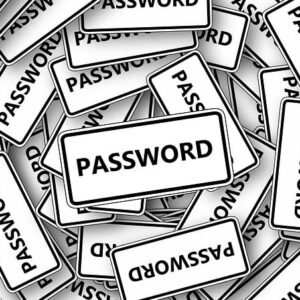Password Managers pros and cons is a pressing question many people have on their minds nowadays. In fact password managers have become essential tools in today’s digital age, helping users secure and manage their numerous online credentials. With the increasing number of accounts we create and the growing complexity of password requirements, relying on our memory alone is no longer a practical solution. In this article, we will delve deeper into the pros and cons of password managers, exploring their benefits, potential drawbacks, and factors to consider when choosing the right one for your needs.

Pros of Using Password Managers:
1. Enhanced Security: One of the primary advantages of password managers is their ability to generate strong, unique passwords for each online account. These complex passwords, typically a combination of letters, numbers, and symbols, greatly enhance security by reducing the risk of password guessing or brute-force attacks. With a password manager, you no longer need to rely on easily guessable passwords or reuse the same password across multiple accounts.
2. Simplified Password Management: Password managers simplify the process of managing multiple passwords. They store all your login credentials in a secure vault, allowing you to access them with a single master password or other authentication methods. This eliminates the need to remember or write down numerous passwords, streamlining the login process and saving time.
3. Autofill Functionality: Most password managers offer autofill functionality, automatically filling in login credentials for websites and applications. This feature eliminates the hassle of manually typing passwords, reducing the risk of mistakes or typos. It enhances convenience and saves time, particularly when dealing with a large number of accounts.
4. Secure Storage: Password managers employ advanced encryption algorithms to securely store your passwords and other sensitive data. The data is typically encrypted both at rest and in transit, ensuring that even if the password manager’s database is compromised, the encrypted information remains inaccessible to unauthorized individuals. This provides an additional layer of protection for your sensitive information.
5. Cross-Platform Access: Many password managers offer cross-platform compatibility, allowing you to access your passwords from various devices, such as desktops, laptops, smartphones, and tablets. This enables you to have your passwords readily available regardless of the device you are using, enhancing convenience and flexibility.
Cons of Using Password Managers:

1. Single Point of Failure: While password managers enhance security, they also introduce a single point of failure. If an attacker gains access to your master password or bypasses the password manager’s security measures, they may gain access to all your stored passwords. Therefore, it is crucial to choose a reputable and trusted password manager and ensure you have a strong master password or use additional authentication methods.
2. Dependency on the Password Manager: Password managers become an integral part of your digital life, and reliance on them is essential. If for any reason you are unable to access your password manager or forget your master password, retrieving your stored passwords can be challenging. It is important to have contingency plans in place, such as password recovery options or alternative authentication methods.
3. Potential for Data Breaches: Like any online service, password managers are not immune to data breaches. While reputable password managers employ strong security measures to protect your data, there is always a small risk of a breach. It is crucial to choose a password manager with a proven track record of security and regularly update your software to mitigate potential vulnerabilities.
4. Learning Curve: Some users may find it challenging to adapt to a new password manager and learn its features and functionalities. The initial setup and organization of passwords may require some effort and time investment. However, most password managers offer user-friendly interfaces and intuitive features to simplify the process.
5. Cost Considerations: While many password managers offer free versions with basic features, premium plans with advanced functionalities often come with a cost. Consider your budget and the level of features you require when choosing a password manager. It is important to weigh the benefits against the cost to determine the best fit for your needs.
Choosing the Right Password Manager:

When selecting a password manager, consider the following factors:
1. Security Features: Look for password managers that employ strong encryption methods, offer two-factor authentication, and regularly update their software to address potential vulnerabilities.
2. User-Friendliness: Choose a password manager with an intuitive interface and user-friendly features to ensure a smooth user experience.
3. Cross-Platform Compatibility: Ensure the password manager is compatible with the devices and operating systems you use regularly, allowing you to access your passwords seamlessly across different platforms.
4. Reputation and Trustworthiness: Research and select a reputable password manager with a proven track record of security and privacy. Read reviews and check for any past security incidents or breaches.
5. Additional Features: Consider other features provided by the password manager, such as secure notes storage, password sharing, or password strength analysis. Evaluate if these features align with your specific needs.
In conclusion, password managers offer numerous benefits in terms of security and convenience. They simplify password management, enhance security by generating strong passwords, and provide secure storage for your credentials. However, it is important to be aware of their potential drawbacks and take necessary precautions to ensure the security of your password manager. By choosing a reputable password manager, using strong authentication methods, and regularly updating your software, you can leverage the advantages of password managers while mitigating their potential risks. Remember, the key is to find the right balance between security and convenience for your individual needs.



